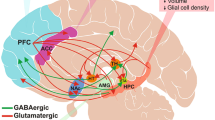Abstract
Rationale. A deregulation in concentrations of the neurosteroids (allo)pregnanolone and 3α,5α-tetrahydrodeoxycorticosterone (3α,5α-TH DOC) has been found in depressed patients. These levels normalize following treatment with selective serotonin reuptake inhibitors (SSRIs). Furthermore, administration of the neurosteroid dehydroepiandrosterone (DHEA) to depressed patients is associated with an improvement in the symptoms of depression.
Objective. The aim of the present review is to clarify the mechanisms whereby neurosteroids, particularly allopregnanolone and DHEA, are involved in depression and to discuss the effect of SSRIs on allopregnanolone concentration.
Methods. Literature on preclinical and clinical research has been analyzed in relation to the pathophysiology of depression.
Results. Decreased plasma and cerebrospinal fluid concentrations of allopregnanolone in depressed patients increase to normal levels following effective psychopharmacological treatment. This might either be a physiological aspect of improvement in the symptoms of depression or a pharmacologically induced alteration. Several findings support the hypothesis of an antidepressant effect of allopregnanolone. These include an antidepressant effect demonstrated in an animal model of depression and a suppressing effect on corticotropin-releasing hormone (CRH) and arginine-vasopressin (AVP) gene expression. SSRIs increase levels of allopregnanolone, but this effect is not confined to this class of drugs alone. The beneficial effect of DHEA administration in depressed patients might result from its sigma 1 receptor-mediated enhancement of noradrenaline and serotonin neurotransmission, antiglucocorticoid effects, and cognition enhancing effects.
Conclusions. Indirect genomic (allopregnanolone) and non-genomic (allopregnanolone and DHEA) mechanisms are involved in the neurosteroidogenic pathophysiology of depression. Clinical studies in homogeneous groups of non-pharmacologically treated depressed patients are required to elucidate this relationship further.
Similar content being viewed by others
Author information
Authors and Affiliations
Additional information
Electronic Publication
Rights and permissions
About this article
Cite this article
van Broekhoven, F., Verkes, R.J. Neurosteroids in depression: a review. Psychopharmacology 165, 97–110 (2003). https://doi.org/10.1007/s00213-002-1257-1
Received:
Accepted:
Issue Date:
DOI: https://doi.org/10.1007/s00213-002-1257-1




